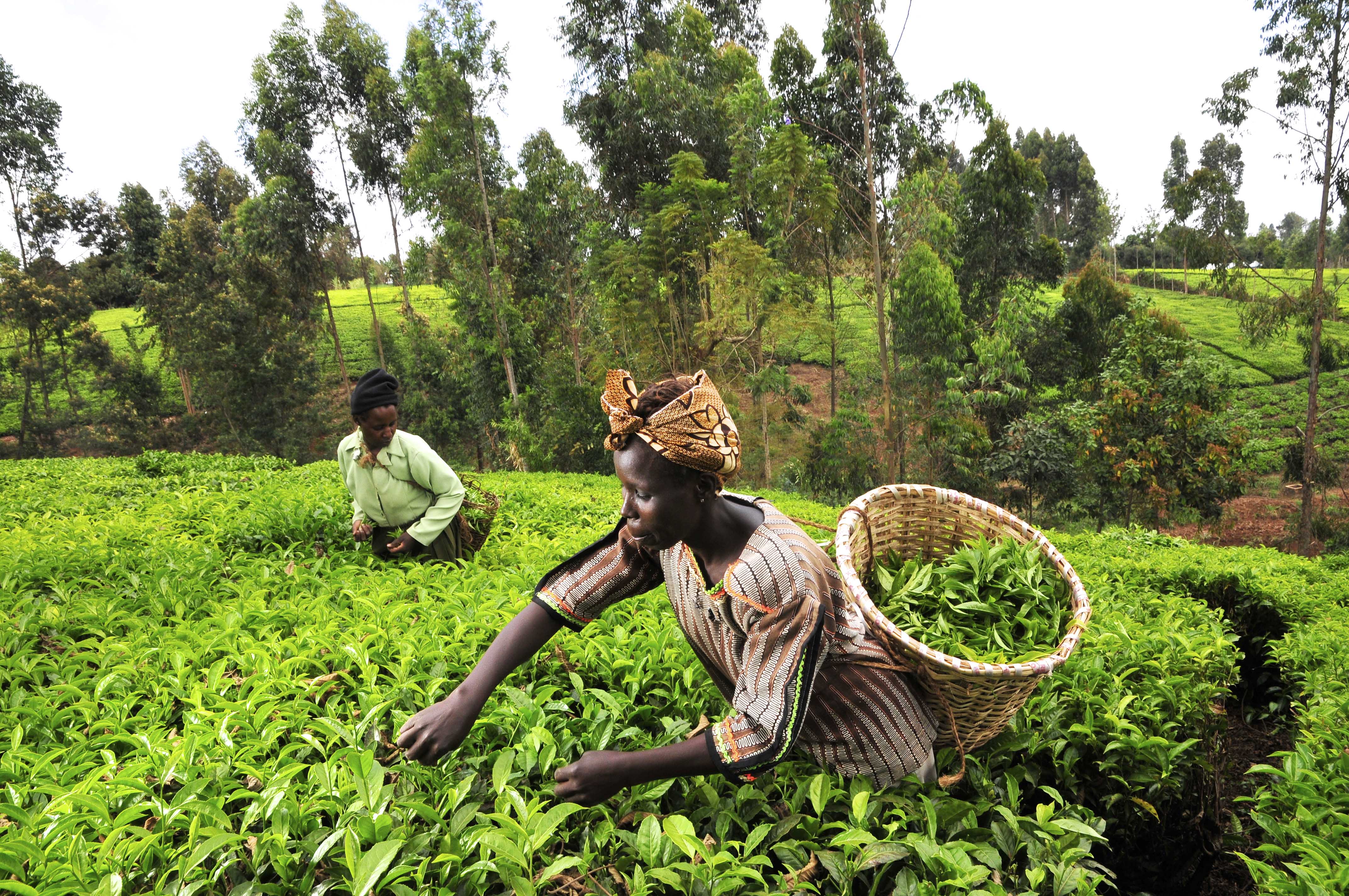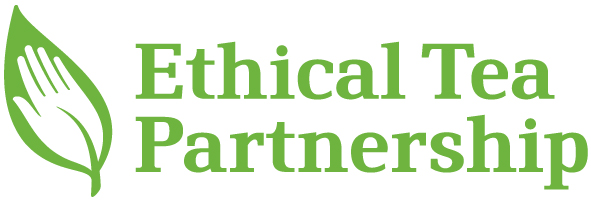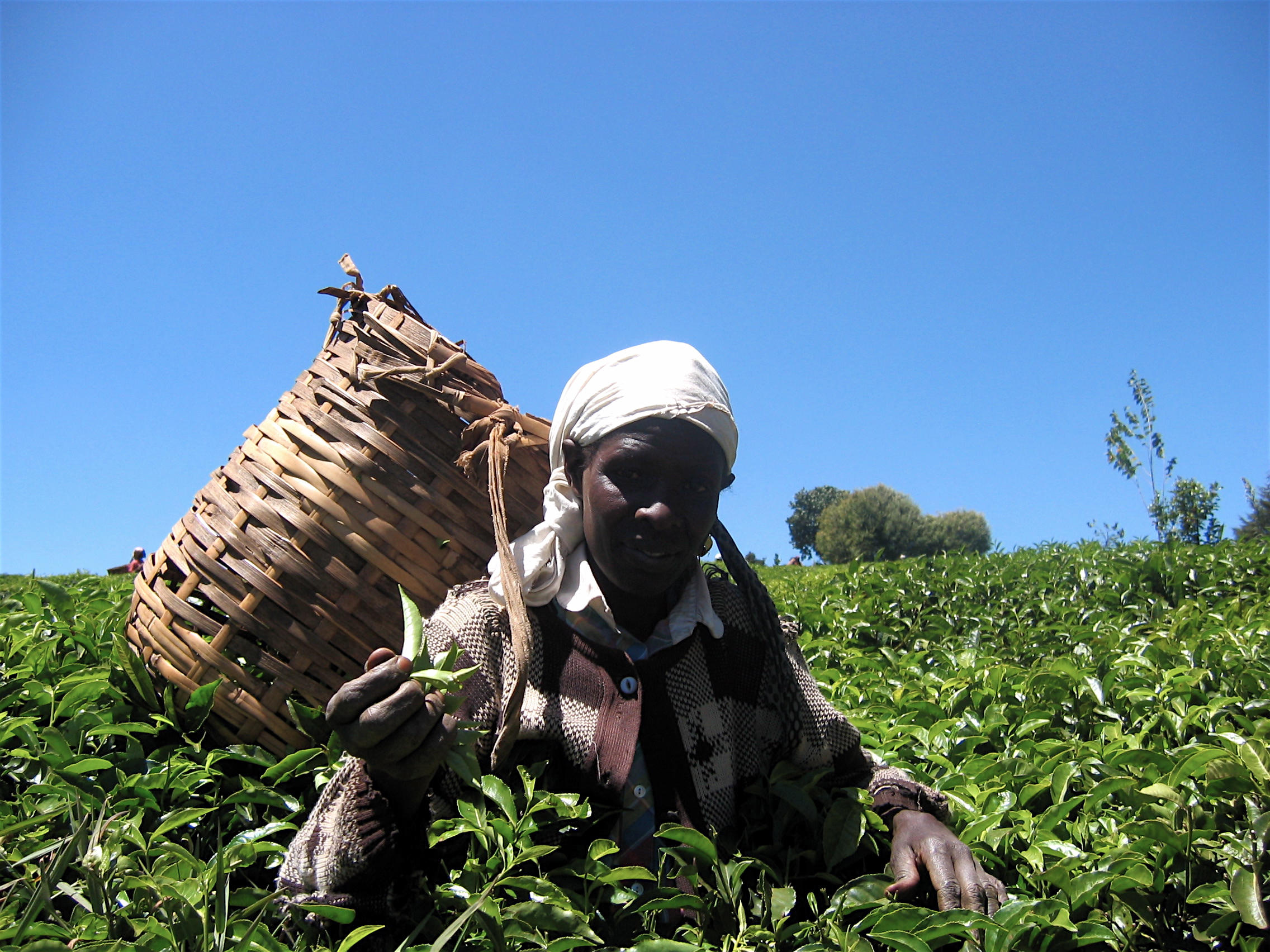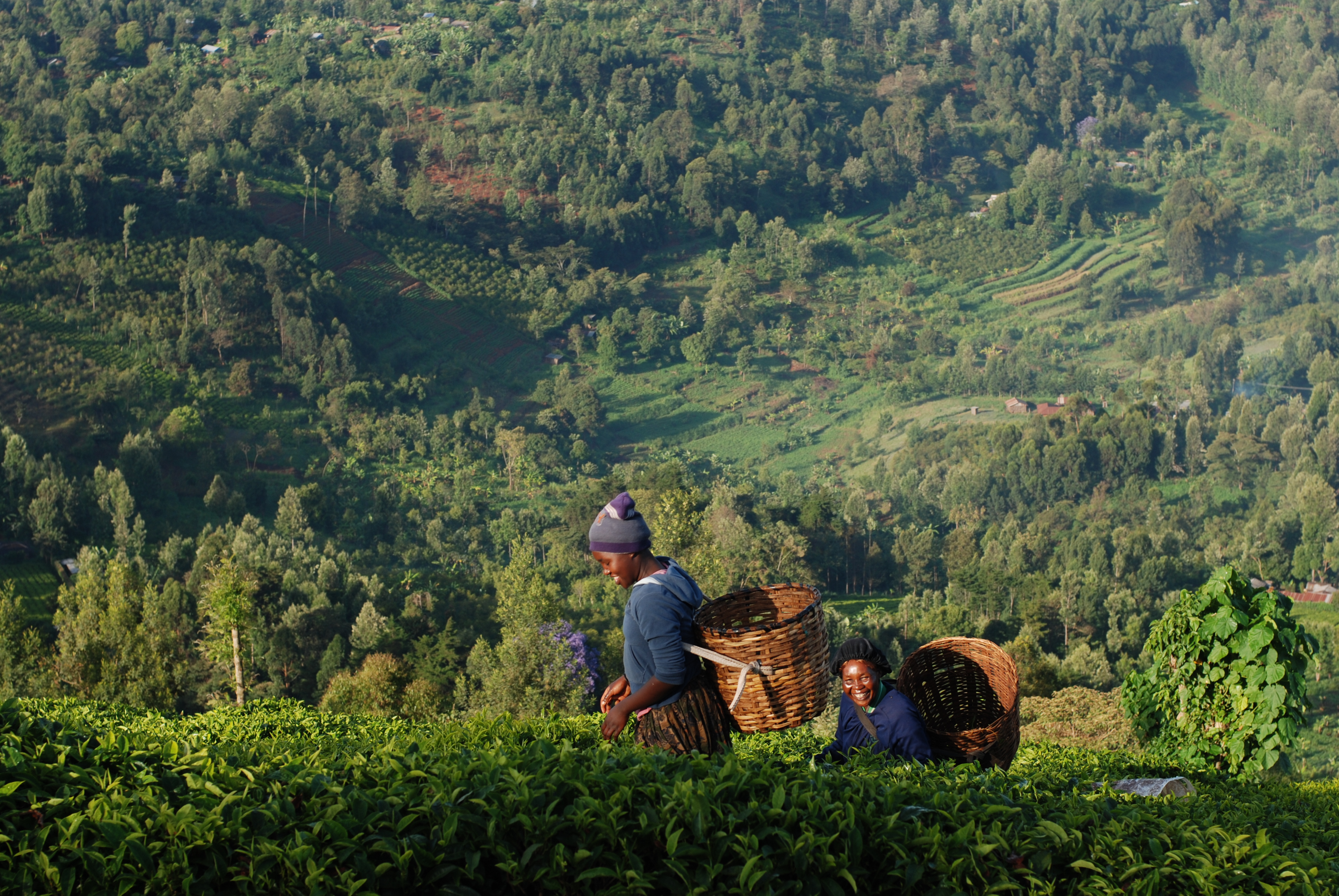Climate change forces a new intersection of human livelihoods and rapidly changing environments. This dynamic plays out prominently in agricultural systems across the globe, specifically in those regions most at risk of the effects of climate change. Tea is one such system under threat; and consequently, the farmers that grow it. However, adaptation through bottom-up sustainable development may aid in stabilizing the tea sector, safeguarding livelihoods. Thankfully, many organizations and dedicated sustainable development and climate change professionals are making this key adaptation a reality.
Rachel Cracknell is an impassioned sustainability professional with over 12 years experience as an environmental researcher, consultant, and climate change specialist. She is an accomplished speaker and writer, published in both academic and industry journals. Currently, she is the Project Manager and Climate Change Specialist at the Ethical Tea Partnership (ETP), where she focuses on developing strategies for climate change adaptation within the tea sector. The ETP is an alliance of tea packers working together to improve the sustainability of the tea sector. Currently, the ETP’s standard system operates in 10 countries, covering 50 brands sold in over 100 countries.
I got the opportunity to talk with Rachel about her work within the tea sector of Kenya for ETP. These are excerpts from our conversation, edited for clarity.
In the feature photo: Farmers harvest tea on a farm in Kenya– photo credit to CIAT via flickr
What drives the work of the ETP?
The motivation behind the ETP work is to raise standards in the tea sector. ETP started out as an organization to support people buying tea whilst providing quality assurance in their supply chain. What really drives our work is the goal of improving the livelihoods of farmers, workers, and all people involved in the tea supply chains and in their surrounding communities. Additionally, we are driven to push boundaries on difficult issues. For example, there is a lot of work that ETP has been doing on wages.
ETP has been doing research trying to understand what the living wage is in different tea growing communities and mapping that against what they are actually receiving. Then we pin together key industry-wide stakeholders to try and raise standards and wages. The most high-profile project we are doing now is in Malawi, where we have a big program to bring together producers, packers, NGOs, development agencies, everyone involved in the tea supply chain to increase wages and reduce the disparity between the living wage and what farmers and workers are receiving.
When did ETP start thinking about climate change?
Climate change came onto ETP’s agenda about 6 years ago, when we were hearing from the field that tea producers were starting to face quite significant challenges with climate change. It became a key issue on our agenda and fit our mandate as an issue that pushes boundaries, because at the time nobody had addressed climate change in tea supply chains.
The work in Kenya started 5 years ago, and we had a climate change adaptation program that we implemented with the German development agency GIZ. We also worked closely with Cafédirect, looking at specific sections of their tea supply chain. Learning from this project in Kenya, we have now been rolling it out to other countries, like Uganda and Malawi. Additionally, we are hearing that smallholders in various other countries are facing significant challenges that are making it difficult to make a livelihood from tea, so we are working on taking this work to Asia.
I’ve read a lot about the work of ETP in Kenya. Can you speak about how you’ve implemented bottom-up development initiatives in Kenya? Are there any aspects of the tea supply chain that are unique to Kenya?
Right from the start, we set it up in a way that was very much bottom-up. One of the things that is unique (to the Kenyan tea sector) is that it is predominantly smallholder-driven. In many other tea producing countries, there are many large estates, but in Kenya there are 600,000 smallholder tea farmers who produce a majority of the tea. Under the umbrella of the Kenya Tea Development Agency (KDTA), our work was focusing on the smallholder farmer sector, and the whole way in which we approached the project was very much bottom-up.
The main overarching thing that we did in the program was ensure that the knowledge that we were creating and the tools and methods were embedded within the structure of the KDTA, so they had full ownership of the project in its implementation. That’s the kind of way the ETP likes to work. Its the most effective, and that’s one of the benefits of ETP having local staff from tea sectors within the countries we work because they know the systems and how to make things happen within those structures of those countries.
It was fully recognized that to allow tea farmers to continue growing tea, it was important that their income be not based on tea alone.
How has climate change impacted the smallholders you work with, and what steps has ETP taken to mitigate these challenges?
The climate change adaptation work we did with KTDA started out with us holding various workshops with smallholder farmers, going through this process of risk and opportunity analysis with them. So we went through this participatory climate change awareness workshop where they looked at the local challenges that they were facing, even outside of climate change. We mapped those challenges and used those to develop training modules that the farmers could then take on, that were inter-related to climate change. It was a very holistic approach. It included everything from tea clones to what types of other crops they could grow to diversify and make sure they have a stable system going forward. It was fully recognized that to allow tea farmers to continue growing tea, it was important that their income be not based on tea alone. In Kenya, they saw frost damage that caused the tea crop to be wiped out for a year. If they only have tea as their source of income, they will be in a bad position.
On the other hand, it was also about teaching farmers how to improve their business management skills, so that they could better manage their farms financially. It was a very holistic project that focused on a whole range of issues from the main vulnerability of farmers to the unpredictability that climate change is bringing about. We worked with farmers to help them identify what their challenges were, and then developed training modules to address those challenges, which we rolled out through the KDTA. The KDTA already provides training to their farmers in the form of farmer field schools, so the idea is that every farmer will enroll. We ensured that KDTA has full ownership over the training package that we developed. Then, it was incorporated into the farmer field school training agenda. It’s a very bottom-up training system; at the beginning of the academic year, the farmers decide from a toolbox of potential trainings what they would like to have and then that’s what’s delivered to them, so its up to them to decide. We incorporated the climate change training into the system. What we did was set up by the farmers – the issues were identified and then they chose the training.
In the photo: Tea worker in Kenya – photo credit to musicfiend via flickr
What types of socio-cultural challenges exist in the areas you work? Do gender roles influence levels of empowerment for tea workers? If so, what steps has the Ethical Tea Partnership done to address these issues?
In Kenya, one of the issues we always face is that historically landownership falls into male hands. It’s always held within the name of the man in the family. However, more often than not, it’s the female that does all of the work on the farm- but because the land deeds are in the hands of the man, he is the one that gets paid, and he is the one that is often on the registration to receive the training. It is a real challenge, and its very systemic within the cultural context of Kenya. In parallel to our climate change work, we have been delivering a big program of work on social issues and gender issues. Particularly, we work with communities to help raise awareness of women’s role in the household, so that there is more understanding and appreciation of the roles that different players have within the household.
For example, one of the big challenges in the Kenyan tea sector is that a huge amount of the farmers’ income is paid in terms of bonuses. They get paid a piece rate from the tea they supply to the factories on a monthly basis. But, every six months they get a bonus, which is derived from the profits that the factories made, and this bonus typically gets paid to the man. It’s reported that the family won’t see the man for 2-4 weeks as he goes and hits the town, coming back with no money left. One of the things that we work on is having an open discussion with families about finances and the importance of education. Also, we try to get the men to recognize that it’s really important to invest this money back into the family and for the women to have a place to explain what this money can be used for. This leads to finance management training, business skills and management training, so that people understand financial flows through the household and the implications of squandering the money. These kinds of issues are on our agenda, but they are challenging. Especially when something is so deep-rooted within a community and a culture.
Recently, the UN adopted the Sustainable Development Goals (SDGs). There has been a lot of talk about information and communications technology with respect to the SDGs (mobile phones, etc) to aid with scaling and facilitate collaboration. How is the ETP incorporating technology into what you do?
Yeah, we have definitely noticed it. We work quite closely with Cafédirect Producers’ Foundation, and they developed an amazing tool called WeFarm. It’s an SMS platform where farmers can ask questions about issues they are having, and it’s sent to other farmers who can respond. A lot of the work we are doing with farmers is trying to always improve the quality of the tea and their productivity to help improve their income, and it seems that mobile phone technology can provide a good means of collecting data.
At the moment, our data collection is from farmers’ field books, which means you have to collect paper copies, and things can get damaged and disappear, so using mobile phone technology to collect data in real time is something I’m hearing a lot more people talk about. So yes, it’s definitely something that we are seeing becoming more common place especially in Africa, where everybody has a phone, maybe not a smart phone, but everyone has a phone. They use SMS and texting for sending and receiving money, which is kind of amazing. Its great especially where access to finances in rural communities can be quite challenging.
In the photo: Farmers harvest tea on a farm in Kenya– photo credit to Kamweti Mutu via flickr
Are ecological justice issues also social issues? Is climate change creating a new frontier of social justice issues and challenges?
I absolutely agree. It seems really unfair that the emissions that are being generated in the West by people that live very affluent lifestyles aren’t directly impacted by climate change, or though they might be, they aren’t feeling the economics of climate change. Reflecting about this, I used to work in sustainable consumption and production and got very frustrated after a while because people just couldn’t see a concrete side of climate change. I was struck the first time I went to Kenya with ETP – to go to Kenya and talk to a taxi driver on the way to an airport and talk to him about my work (with climate change). He said yes, its a huge issue in Kenya, we are seeing it, we are feeling it. That really opened my eyes to the disparities that are there.
What can we do to raise awareness and help your efforts?
First, the main thing would be raising awareness. Second, putting pressure on the tea companies to address climate change in their supply chains, or supporting those companies that are already addressing climate change in their supply chains. Those are the biggest things that people can do right now. There are some visionary companies that are investing in these issues with the smallholders that are producing their tea, but only a small handful. I would like to see this issue being recognized by more of the big tea packers, and them investing money and securing the livelihoods of the people that are producing their tea. And that makes business sense as well because they need the people producing tea so people can buy the tea, it should be on the top of their agenda.












